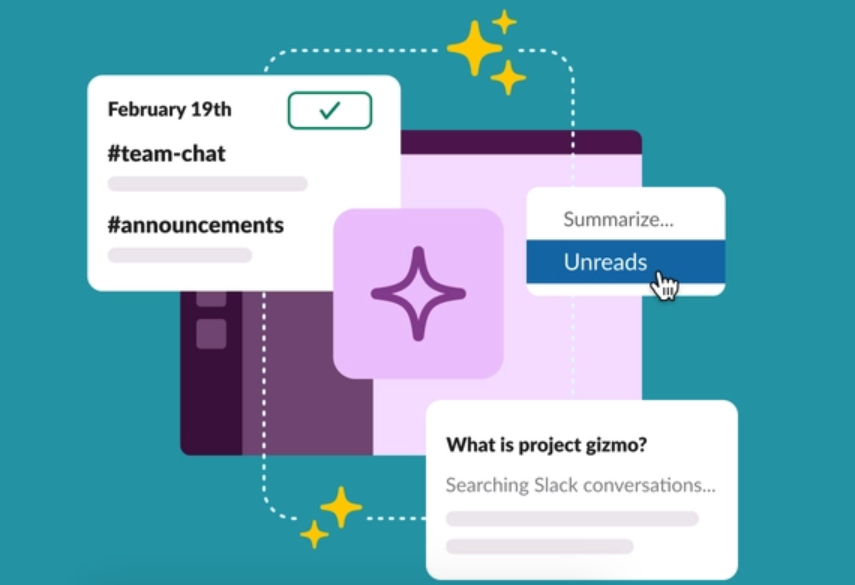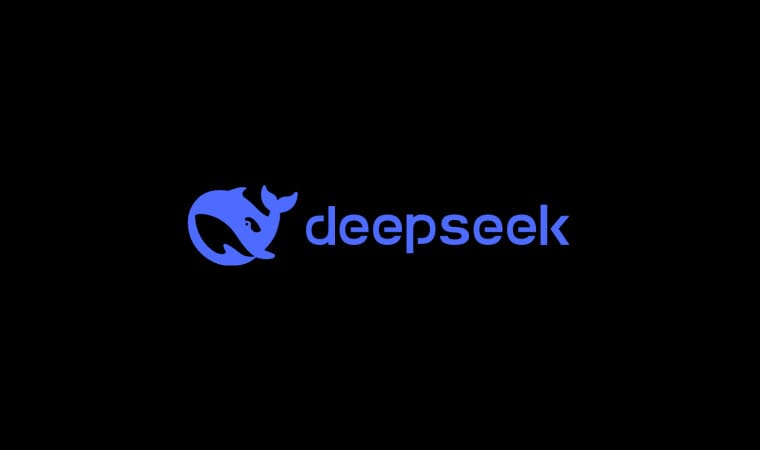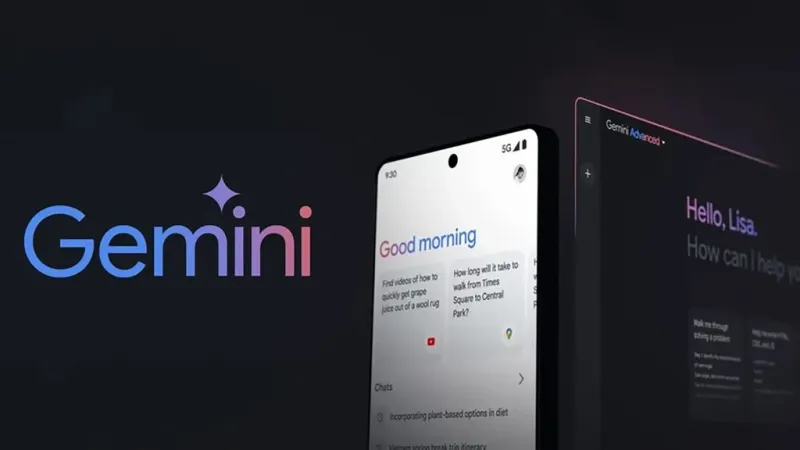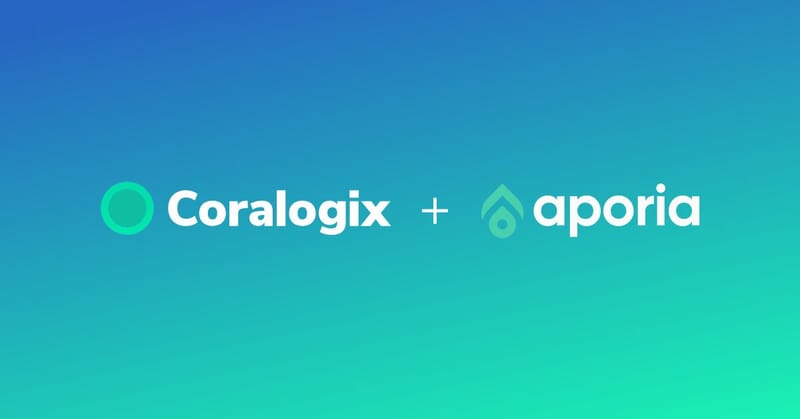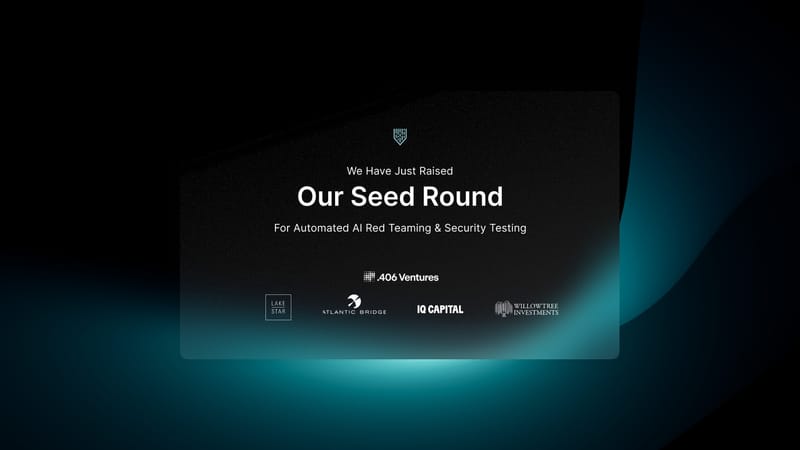This Week in AI: February 11-17
Otter introduces Meeting GenAI, a collection of AI-powered tools for meetings; Anthropic is testing the Prompt Shield technology for US-based users to prevent election misinformation; Slack announced the the launch of Slack AI; Chat with RTX allows select AI PC owners to customize their own chatbot
Every weekend, we bring together a selection of the week's most relevant headlines on AI. Each weekly selection covers startups, market trends, regulation, debates, technology, and other trending topics in the industry.
Otter introduces Meeting GenAI, a collection of AI-powered tools for meetings
Otter.ai's flagship product, the AI-powered meeting assistant OtterPilot, was already recognized for its platform-agnostic note-taking and email-composing capabilities. With the availability of Otter AI chat and AI Channels, the OtterPilot has been upgraded with an additional layer of AI-powered tools. Otter AI chat enables users to ask questions about any current or past meeting that OtterPilot attends, regardless of the platform in which they took place. Similarly, AI Channels aims to foster collaboration where all team members can benefit from Otter's insights by invoking the chatbot directly in the group chat. Remarkably, Otter AI chat is available as part of the free and paid plans offered by the company.
Anthropic is testing the Prompt Shield technology for US-based users to prevent election misinformation
The election-specific Prompt Shield technology detects questions about the upcoming US elections and routes users to an authoritative source. More precisely, the technology is meant to show users a pop-up offering to redirect them to TurboVote, a resource providing voter support maintained by the nonpartisan organization Democracy Works. Since Claude is not trained often, it lacks up-to-date information on future and ongoing events, such as the upcoming elections. Thus, prompting Claude about these topics may cause the chatbot to hallucinate as it attempts to compensate for the lack of training data on the subject.
Anthropic's decision is one of the most recent attempts to increase the safety and trustworthiness of generative AI tools in preparation for the upcoming global wave of national elections, as at least 64 countries prepare to head to the polls. Like Anthropic, OpenAI plans to redirect voting-related queries to the nonpartisan website CanIVote.org. Both companies will prohibit using their generative AI tools for political campaigns and lobbying. Moreover, OpenAI has pledged to ban users who create material that impersonates political figures, misrepresents the voting process, or discourages voting. Google has implemented policies requiring the prominent labeling of AI-generated material in political advertisements hosted on its outlets. More radically, Meta has forbidden using generative AI tools, including its own, in political campaigns published on its platforms.
The FTC is proposing to extend the protections of the Impersonation Law to cover individuals
The FTC is proposing the amendments after considering the comments it received expressing concerns regarding the harms and threats related to the impersonation of individuals. The comments were received during the public comment period for the now-finalized Government and Business Impersonation Rule. This rule will enable the FTC to file court cases to force scammers to return any money they make by impersonating businesses or the government. The proposed amendments would allow the FTC to extend the rule's protections so they apply to individuals. Remarkably, the FTC is also asking for comments on whether the rule should extend liability to the parties that provide goods and services potentially known to be used in impersonation scams (such as generative AI firms).
Guardrails AI launches Guardrails Hub, a collaborative and open-source platform for generative AI 'validators'
As the unpredictability and unreliability of large language models continue to be an obstacle slowing the pace of generative AI adoption, several parties have begun offering products specifically designed to mitigate risk and reduce models' propensity to generate toxic and harmful content. However, these products are often as black-boxed as the models they intend to fix. Thus, there is no way to compare them or verify if they deliver what they advertise. To solve this problem, Guardrails AI has launched Guardrails Hub, a collaborative open-source platform where developers can build, find, and share validation techniques known as validators. The platform can be used free of charge by downloading the Guardrails AI CLI, configuring the settings, and downloading and launching one or several guardrails.
The UK-Ukraine TechExchange is accelerating defense-tech and agritech startups in support of Ukraine
The privately-funded non-profit startup support program emerged from stealth to accelerate Ukraine and UK-based startups specializing in agriculture and defense applications so they can contribute to Ukraine's war and reconstruction efforts. UK-based startups gain access to financial, business, and media support and opportunities for in-field testing within Ukraine. On the other hand, Ukrainian startups get access to market and networking opportunities through the UK investor and startup ecosystem. The UK-Ukraine TechExchange supports four Ukrainian startups: Skyeton, Zvook, Pilotechnika, and Transimpex. The program accepts applications from UK and Ukraine-based startups incorporated 1 to 2 years ago, working on defense tech or agritech, funded to at least pre-seed status, with the ability to deliver impactful and potentially lifesaving innovation and technologies.
Microsoft plans AI-focused 3.2 billion EUR investment in Germany
The investment will take place over the next two years and will be directed towards doubling the capacity of Microsoft's AI and data infrastructure in Germany. Microsoft's investment represents a vote of confidence in the country, whose economy currently experiences its worst downturn in 20 years. The investment will also expand Microsoft's training programs in the country, a reasonable move after Microsoft's vice chair and president stated that Germany ranks second across Europe in AI-based applications creation but ranks 11th in AI skills. Microsoft Germany CEO Marianne Janik suggested that the company mainly looks to invest in the western Rhineland region and around Frankfurt's banking hub.
Kong's new open-source AI Gateway features six plugins focused on AI and LLM usage
Since the plugins are built on top of Kong Gateway, any Kong deployment can be turned into an AI Gateway deployment, thus enabling developers to quickly deliver AI and LLM-powered applications faster, regardless of whether the required AI workflow is in the cloud or a self-hosted LLM. The AI Gateway is also compatible with the 1,000+ Kong Gateway plugins out of the box, ensuring that the AI Gateway is the most capable in Kong's ecosystem. AI Gateway is also natively supported by Kong Konnect, Kong Gateway Enterprise, and Kong Gateway OSS. The AI Gateway opens up a new realm of capabilities, including building multi-LLM integrations (with native OpenAI, Azure AI, Cohere, Anthropic, Mistral, and LLaMA support), centralized AI credential management), advanced AI prompt engineering, and more.
Armilla AI announced its successful $4.5M seed funding raise
Mistral Venture Partners led the funding round, which also counted on the participation of leading insurance providers such as Greenlight Re and Chaucer, among other investors. Armilla will direct the raised capital towards expanding Armilla Guaranteed™, a platform leveraging global AI standards and regulations, such as the EU AI Act, to conduct quality assessments and performance guarantees for AI products. On the one hand, quality assessments ensure that risks such as racial or gender bias and weak model formation are minimal. On the other, performance guarantees make sure that buyers get a reimbursement of fees paid for products that do not perform as promised.
Clarity raised $16M in a seed funding round led by Walden Catalyst and Bessemer Venture Partners
Clarity is a startup on a mission to quickly and effectively detect and immunize clients from deepfakes and other AI-generated synthetic media. The funding will be directed towards Clarity's core research and development, enabling the company to expand its offerings. Clarity currently caters to media publishers, government agencies, and enterprises to mitigate the unprecedented threat that deepfakes and some synthetic media represent. The startup's motivation rests on the fact that, given the availability and broad distribution of the necessary tools to generate deepfakes and synthetic media, the risk will be distributed among all domains and could become unstoppable without further intervention. As a result, Clarity has brought together talent from Artificial Intelligence and Cybersecurity to fulfill its mission to develop best-in-class solutions for detecting and immunizing AI-generated deepfakes and synthetic media.
Slack announced the launch of Slack AI, a collection of AI-powered tool
Slack's AI-powered experience consists of three native and easy-to-use tools: search answers, channel recaps, and thread summaries. The search answers feature offers an AI-powered search feature that provides custom answers to conversational questions made to the Slack AI backed by direct citations to relevant messages. As the name indicates, channel recaps help users generate highlights from a channel to keep up with unread messages and summarize the essential information from the last seven days or within a user-specified date range. Similarly, thread summaries enable users to get the gist of a specific conversation within a channel. Slack and Salesforce have also come forward to ensure that Slack AI is subject to the same security and compliance standards as the rest of their products. Moreover, Slack's LLMs are locally hosted, so all data remains in-house: customer data is neither used to train LLMs nor shared with LLM providers.
Zylon has emerged from stealth with $3.2M raised in a pre-seed round led by Felicis
Founded by the creators of PrivateGPT, Zylon is an AI-powered assistant for workplaces that focuses on a working-backward-from-the-customer vision to provide an AI-powered solution aimed at small and midsize businesses (SMBs). The product emphasizes protection from data leaks, usability that does not require technical expertise, reproducible interactions, and transparent data flows in contrast with the wow factor produced by some of the current chat-based user interfaces. Privacy and complete control over data are guaranteed by the fact that Zylon is based on the PrivateGPT framework, "a complete framework containing all the building blocks required to build private, context-aware GenAI applications." Zylon is currently accepting registrations to participate in the beta program here.
Andrej Karpathy left OpenAI for the second time but states he is departing on good terms
Karpathy, a founding member of OpenAI, left the company in 2017 to join Tesla. However, he rejoined OpenAI after leaving Tesla almost a year ago. Karpathy made his departure public via an X post, where he clarified that his departure is "not a result of any particular event, issue or drama" and that he finds the ongoing conspiracy theories highly entertaining. He also mentions that his time in OpenAI was enjoyable and that he is leaving his position to focus on personal projects. That some people may be trying to find a hidden explanation is not unexpected, given that agitated week in which Sam Altman was asked to step down from his role at OpenAI only to be reinstated.
NVIDIA's Chat with RTX allows select AI PC owners to customize their chatbot
The free-to-download tech demo lets users personalize a chatbot using private information. The chatbot can then be accelerated using a local NVIDIA GeForce RTX 30 Series GPU or higher with at least 8 GB of available VRAM. Chat with RTX uses retrieval-augmented generation, NVIDIA TensorRT-LLM software, and NVIDIA RTX acceleration to enable GeForce-powered Windows PCs to unlock the capabilities of generative AI. Local files are used as datasets to fine-tune open-source models such as Mistral or Llama 2. Chat with RTX supports several file formats and data from YouTube videos and playlists. Moreover, since the model and dataset are locally hosted, users can process sensitive information without leaking concerns. The Chat with RTX demo is meant to showcase the potential held by NVIDIA's technology to accelerate LLMs for RAG-based application deployment.
Mindy announces a $6M seed funding round and general availability
The funding round was led by Sequoia Capital managing partner Roelof Botha, with participation from the Founders Fund. Additionally, Mindy announced the general availability of its AI-powered email-based assistant meant to help anyone get value from generative AI without requiring them to become prompt engineers. Mindy has chosen email as its preferred platform for communication because it "is the original Internet technology and is still the most ubiquitous tool used to communicate in the business world." Moreover, email is an asynchronous technology, enabling the assistant to perform deep searches that deliver well-informed and sourced results. Finally, users are only required to share information they feel comfortable sharing, letting Mindy learn from context and earn their trust. The funding round will enable the company to deliver more features and channels to interact with Mindy and to continue the development of its LLM infrastructure. Mindy can be tried out by registering your email at https://mindy.com/.
OpenAI has completed a deal that places its valuation at over $80B
According to several sources, multiple people with knowledge of the subject confirmed that the deal had been completed, which means that OpenAI has nearly tripled its valuation in less than ten months. OpenAI has reportedly sold existing shares in a tender offer led by Thrive Capital. OpenAI has declined to comment on the deal. This is the second time that the company has closed a tender offer, with the other one taking place early last year where VC firms Thrive Capital, Sequoia Capital, Andreessen Horowitz, and K2 Global bought existing OpenAI shares, placing the value at the company at $29 billion. The deal provides a much-needed vote of confidence in the company after Sam Altman was ousted from his position last November, only to be reinstated a week later. The turmoil led 700 out of OpenAI's 770 employees to sign a petition demanding Altman's reinstatement, with others threatening to resign in support of the company's CEO. Altman was ultimately reinstated, and some of OpenAI's board members stepped down from their positions.
Update (02/20/2024): To provide the most comprehensive summary of the week's news, we've added the following summaries of news that will be covered in fuller detail.
Langchain announces Series A round and the general availability of LangSmith
The $25 million Series A funding round, led by Sequoia Capital, will likely be invested in, among other things, the development of LangSmith, which is now generally available here. LangSmith is a tool that supports LLM application prototyping, beta testing, and production, regardless of whether the applications are built using Langchain. The LangSmith platform has seen over 80K signups since launch, over 5K active teams per month, and over 40 million traces logged during January 2024.
OpenAI surprised everyone by sharing early research progress on Sora, its new video generation model
The diffusion model can create videos up to 60 seconds long from scratch or extend generated videos to make them longer. It can also animate the contents of an image accurately and with an impressive level of detail. OpenAI expects that Sora will become the starting point for "models that can understand and simulate the real world," which it considers a necessary step towards artificial general intelligence. The model is currently available to red teams for additional security testing and to invited creators so they can provide feedback to improve the usefulness of Sora before it is incorporated into any OpenAI product.
Cohere for AI's open-source multilingual LLM Aya covers over 100 languages
Cohere's non-profit research lab, Cohere for AI (C4AI), recently announced the model, remarking that it covers more than twice as many languages as other open-source models. C4AI also stated that it would be open-sourcing a massive multilanguage instruction fine-tuned data set: a 513 million token dataset including annotations from 114 languages. The open-source release of Aya and its dataset is meant to help close the gap caused by the language limitations of many open-source LLMs and the cultural bias carried over by the primary focus on English and other commonly spoken languages. Besides outperforming existing open multilingual models, such as mT0 and Bloomz, Aya also includes over 50 unserved languages, thus providing the AI ecosystem with a model incorporating several underrepresented languages.
Google announces Gemini 1.5 and expands access to Gemini models for Vertex AI customers
Customers can now build generative AI applications in Vertex AI using Gemini Pro and Ultra 1.0. According to Google, many customers, including Samsung, Quora, and Jasper, are already innovating with the Gemini models using the Gemini API through Vertex AI. The company is also announcing the next-generation Gemini 1.5 models, with a key selling point being that Gemini Pro 1.5 achieves a performance similar to Gemini Ultra 1.0 while being more efficient to train and serve. This model will be released for early testing with a 128,000-token context window. However, a select group of developers and enterprise customers will have access to the private preview of a 1-million-token context window via AI Studio and Vertex AI.

